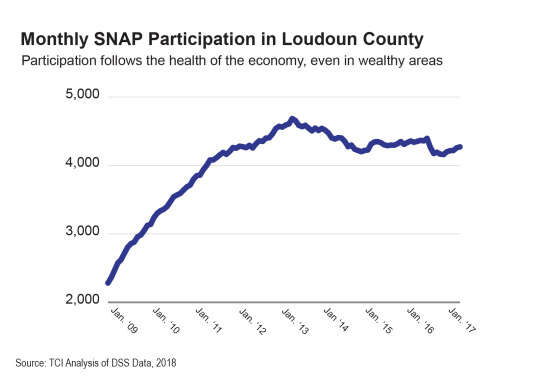June 20, 2018
House Insists on Taking Food off the Table
Last month, an irresponsible Farm Bill without bipartisan support died on the floor of the U.S. House of Representatives. But House Republicans have not given up in their attempts to revive it. The House is set to vote again this week on deeply flawed legislation that endangers the health and livelihoods of the hundreds of thousands of Virginians who benefit from the Supplemental Nutrition Assistance Program (SNAP), more commonly known as food stamps.
Though it’s called the Farm Bill, it reaches far beyond the fields and directly into the homes of roughly 374,000 Virginian households who rely on SNAP for healthy, nutritious food. Those households are often families, meaning the total number of Virginians benefiting from the program each month is around 794,780. The House proposed version of the bill would cut benefits, add bureaucratic reporting steps, and implement punitive work requirements on many of these families.
The version that made it out of the House Agriculture Committee last month proposed cutting SNAP benefits by about $17 billion, but through several amendments adopted during floor debate, they cranked up the cuts to roughly $19 billion. And they adopted additional amendments that would make it harder for states to apply for work requirement waivers in high-unemployment areas, cut new funding for job training, and restrict eligibility for recipients with certain criminal convictions.
The bottom line remains the same, though: this is one-sided legislation that would cause more than 1 million households (2 million people) nationally – particularly working families – to lose their benefits or have them reduced.
Proponents of the House Bill argue that the proposed $1 billion-a-year increase in funding for job training would promote self-sufficiency. This money, however, is being diverted from the crucial food assistance that helps working low-income people participate in their local economies. What’s more, 79 percent of Virginia’s families on SNAP have at least one working member, and more are simply temporarily between jobs.
This is an issue that affects every city, county, and congressional district in Virginia, regardless of poverty rate or median income. SNAP cuts are particularly damaging to Virginia’s rural localities, where enrollment rates are higher. It is worth noting, though, that SNAP is also important for many families in metro areas, particularly during periods of job scarcity such as the aftermath of the great recession. SNAP participation in Loudoun County, for example, dubbed the “richest” county in the nation, increased between 2009 and 2013 as more families struggled to make ends meet.

Thankfully, other options besides the House Farm Bill are on the table. The most recent Senate Farm Bill, for example, is a bipartisan effort with no damaging changes to SNAP, and it passed the Senate Agriculture Committee last week almost unanimously. Virginia’s U.S. House members should heed this effort as a model for their own chamber’s legislation. The current House Bill simply puts too many Virginia workers and families at risk.
Category:
Economic Opportunity

